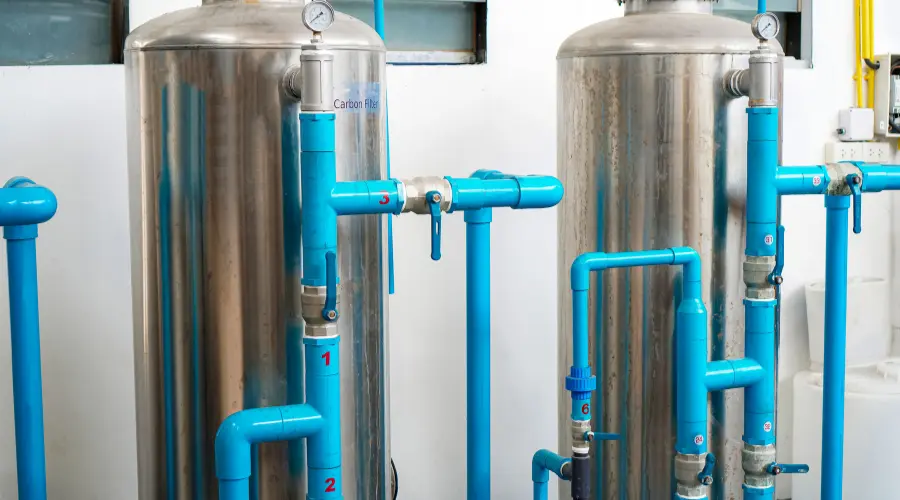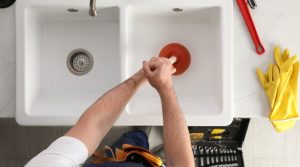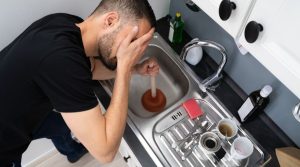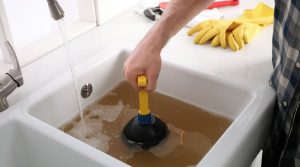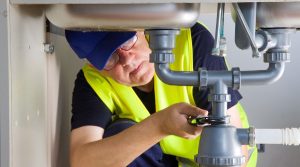New Jersey’s water quality presents unique challenges, from lead contamination to PFAS concerns. Understanding these issues and adopting effective filtration methods are crucial for safeguarding your home’s water supply and ensuring your family’s health.
Key Takeaways
- Lead Contamination: Lead pipes in older buildings remain a significant concern, particularly in cities like Newark.
- PFAS “Forever Chemicals”: These persistent contaminants pose potential long-term health risks.
- Effective Filtration: Reverse osmosis, activated carbon filters, and whole-house systems are reliable options for addressing New Jersey’s water quality issues.
- Regular Testing: Understanding the specific contaminants in your water through professional testing is essential.
How Is Water Quality in New Jersey?
Water quality in New Jersey is shaped by regional infrastructure, aging plumbing systems, and the state’s diverse water sources. While municipal water systems meet federal and state safety standards, persistent issues like lead contamination and emerging contaminants, such as PFAS, highlight the importance of vigilance and proactive measures.
In some areas, water from older infrastructure can lead to elevated levels of contaminants, underscoring the need for household water filtration systems. Even in regions with fewer infrastructure challenges, natural and industrial contaminants may require attention to ensure safe, clean water.
What Is the Biggest Water Problem in New Jersey?
- Lead Contamination Lead contamination remains one of New Jersey’s most pressing water challenges. Many homes and buildings built before 1986 still have lead pipes, solder, or fixtures that can leach lead into the water supply. Newark’s lead crisis, which garnered national attention, is a stark reminder of the dangers posed by aging infrastructure. Lead exposure, even at low levels, can have severe health effects, particularly for children.
- PFAS (Per- and Polyfluoroalkyl Substances) PFAS, often called “forever chemicals,” are synthetic compounds used in various industrial applications. These substances resist degradation, accumulate in the environment, and have been linked to health risks, including cancer, hormonal disruption, and immune system effects. In New Jersey, several water sources have tested positive for PFAS, prompting stricter state regulations and an increased demand for effective filtration solutions.
- Aging Infrastructure Beyond lead, New Jersey’s aging water infrastructure can contribute to other issues, such as pipe corrosion and sediment in the water supply. Regular maintenance and updates are crucial but not always feasible for municipalities, making household filtration systems a necessary safeguard.
Water Purification and Filtration in New Jersey
To combat these challenges, various water filtration and purification methods are available. Choosing the right system depends on the specific contaminants present in your water. Below are some of the most effective solutions:
- Activated Carbon Filters
- What They Remove: Chlorine, volatile organic compounds (VOCs), and some PFAS.
- Best For: Improving taste and odor; under-sink systems or pitcher filters.
- Pros: Affordable and easy to use.
- Cons: Limited effectiveness against heavy metals and some smaller contaminants.
- Reverse Osmosis (RO) Systems
- What They Remove: Lead, PFAS, arsenic, nitrates, and other contaminants.
- How It Works: Forces water through a semi-permeable membrane, filtering out impurities.
- Best For: Comprehensive filtration needs.
- Cons: Higher upfront cost; may require professional installation.
- Distillation Systems
- What They Remove: Heavy metals, certain chemicals, and bacteria.
- How It Works: Water is boiled, and the steam is collected and condensed back into liquid, leaving contaminants behind.
- Best For: Removing a broad range of pollutants.
- Cons: Slow process; not ideal for large households.
- Whole-House Filtration Systems
- What They Do: Treat all the water entering your home.
- Best For: Comprehensive protection against multiple contaminants.
- Pros: Provides clean water for drinking, cooking, and bathing.
- Cons: High upfront cost; may require maintenance.
What Is the Most Effective Water Filtration Method?
The most effective method depends on the contaminants present in your water supply:
- For Lead and PFAS: Reverse osmosis systems are typically the best choice due to their ability to filter out a wide range of pollutants.
- For Chlorine and Sediment: Activated carbon filters are an affordable and efficient option.
- For Comprehensive Needs: Whole-house filtration systems offer the most extensive protection, particularly for families concerned about both drinking and bathing water quality.
Professional water testing is essential to determine the specific contaminants in your water, enabling you to select the most appropriate filtration method.
Practical Tips for Maintaining Clean Water at Home
- Regular Testing: Have your water tested annually, especially if you rely on a private well or live in an older home.
- Monitor and Maintain Filters: Replace filters as recommended by the manufacturer to ensure optimal performance.
- Upgrade Plumbing: If possible, replace lead pipes and fixtures to address contamination at the source.
- Stay Informed: Review your local water quality reports to stay updated on potential issues.
- Use Certified Systems: Look for filtration systems certified by reputable organizations like NSF International to ensure they meet safety standards.
FAQ: Your Water Quality Questions Answered
1. How do I find out if my water contains lead?
You can have your water tested by a certified laboratory. Many local utilities also provide annual water quality reports that include information on lead levels.
2. Is a water filter necessary if I use bottled water?
Yes, bottled water is not only costly and environmentally unfriendly but also doesn’t guarantee purity. A high-quality water filter provides a reliable and sustainable solution for safe water at home.
3. How often should I replace my water filter?
The replacement frequency depends on the type of filter and usage:
- Activated carbon filters: Every 6 to 12 months.
- Reverse osmosis membranes: Every 2 to 3 years. Follow the manufacturer’s guidelines for best results.
4. Can water filtration systems remove all contaminants?
No single system can remove every contaminant. A combination of methods may be required for comprehensive protection. Consult a professional to identify the best solution for your needs.
5. Are whole-house filtration systems worth the cost?
For families concerned about both drinking and bathing water quality, whole-house systems provide unparalleled protection and convenience, making them a worthwhile investment.
6. How do I know which filtration system is right for my home?
Start with a professional water test to identify specific contaminants. Based on the results, choose a system that targets those pollutants effectively
.7. What are the health risks of PFAS exposure?
Long-term exposure to PFAS has been linked to health issues such as cancer, hormonal imbalances, and immune system suppression. Filtering your water can significantly reduce these risks.
8. Do filtration systems remove bacteria and viruses?
Not all filtration systems remove bacteria and viruses. If microbial contamination is a concern, consider systems like UV purifiers or distillation.
Conclusion
Water quality in New Jersey presents unique challenges, but understanding these issues and implementing effective solutions can ensure your family’s safety. Whether it’s addressing lead contamination, PFAS, or other pollutants, investing in a reliable filtration system is a critical step toward clean, safe water. Regular testing, informed decisions, and proper maintenance will protect your home and health for years to come. If you need expert guidance, the team at CBJ Plumbers is here to help with reliable and professional solutions tailored to your needs.

